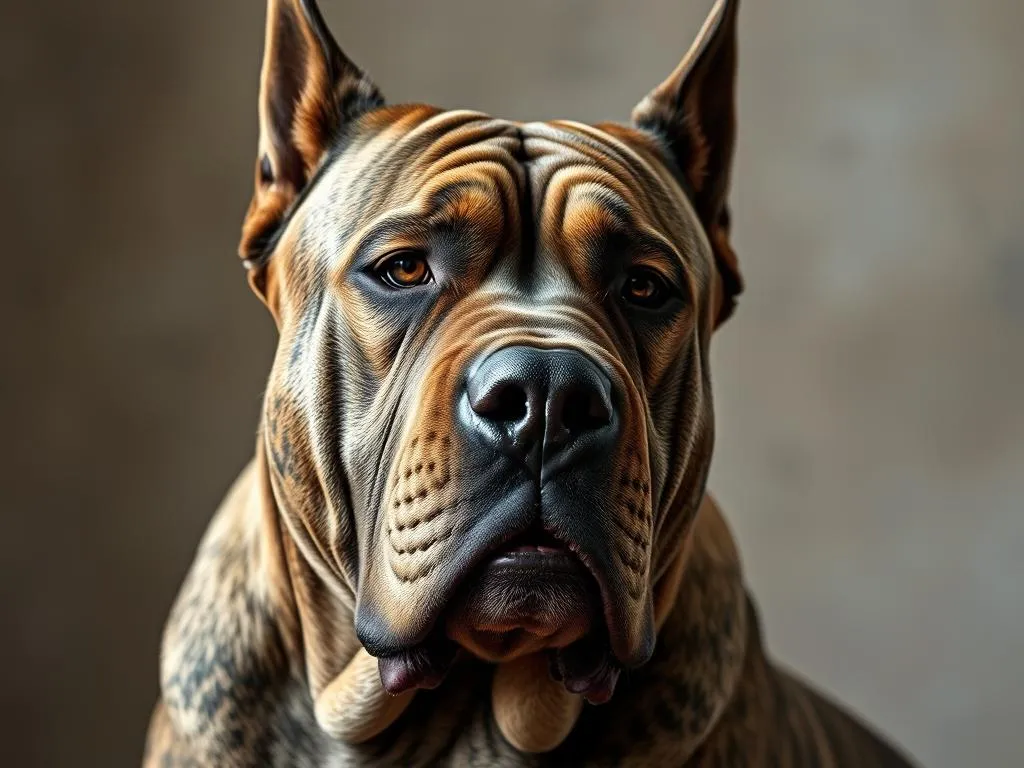
Introduction
Cane Corsos are a majestic and powerful breed that has captured the hearts of dog lovers worldwide. Known for their impressive stature and loyal nature, these dogs are often misunderstood, leading to questions about their temperament, particularly regarding aggression. Understanding aggression in dogs, especially in breeds like the Cane Corso, is crucial for potential owners. This article aims to inform you about the aggression levels of Cane Corsos and how to manage them effectively, ensuring a harmonious relationship between you and your furry friend.
Understanding Cane Corsos
Breed History
The Cane Corso, an ancient breed, hails from Italy and has a rich history that dates back to Roman times. Originally bred as a working dog, the Cane Corso was utilized for various tasks such as guarding property, hunting large game, and even assisting farmers in managing livestock. Their robust build and keen instincts made them ideal protectors and hunters.
Over the centuries, Cane Corsos have been recognized for their exceptional loyalty and protective nature. These traits stem from their historical roles, which required them to be both courageous and intelligent. Understanding the breed’s history is important for grasping their temperament and why they might display certain behaviors, including aggression.
Physical Characteristics
Cane Corsos are a striking breed, characterized by their muscular build and powerful stature. Adult males typically weigh between 110 to 150 pounds, while females range from 80 to 110 pounds. They stand about 24 to 28 inches tall at the shoulder, showcasing their impressive presence.
Their coat is short and dense, available in various colors, including black, fawn, and brindle. Distinctive features such as a broad head, strong jaws, and expressive eyes contribute to their commanding appearance. These physical traits not only enhance their beauty but also play a role in their behavior and interactions with humans and other animals.
Temperament of Cane Corsos
General Temperament Traits
Cane Corsos are known for their loyalty and protective instincts. They often form strong bonds with their families and can be extremely affectionate towards those they trust. This breed is also highly intelligent, which makes them relatively easy to train if approached with the right techniques.
However, their protective nature means they can be wary of strangers. Proper socialization is essential to ensure they develop into well-rounded dogs. Understanding these general temperament traits is key to managing any potential aggression that may arise.
Factors Influencing Aggression
Several factors contribute to the aggression levels of Cane Corsos. Genetics and breeding practices play a significant role, as some lines may exhibit more pronounced protective instincts. Additionally, early socialization experiences can shape how a Cane Corso reacts to different stimuli and environments.
Training techniques and owner behavior are equally important. A well-trained Cane Corso that receives consistent and positive reinforcement is less likely to display aggressive tendencies. Conversely, improper training or a lack of structure can lead to behavioral issues, including aggression.
Assessing Aggression in Cane Corsos
Types of Aggression
Understanding the different types of aggression that may be exhibited by Cane Corsos is crucial for effective management. The most common types include:
-
Territorial Aggression: Cane Corsos are naturally protective of their home and family. They may display aggressive behaviors towards perceived intruders or unfamiliar animals.
-
Protective Aggression: This type of aggression is directed towards threats to their family. A Cane Corso may react aggressively if they feel their loved ones are in danger.
-
Fear-Based Aggression: If a Cane Corso is not properly socialized, they may react aggressively out of fear when confronted with new situations or unfamiliar people.
Signs of Aggression
Recognizing the signs of aggression in Cane Corsos is vital for preventing escalation. Common indicators include:
-
Body Language: Growling, barking, raised hackles, and a stiff posture can signal discomfort or aggression.
-
Situational Triggers: Certain contexts, such as the presence of strangers, other animals, or loud noises, may provoke aggressive reactions.
Assessing Individual Dogs
It’s important to remember that each Cane Corso is an individual, and their aggressive tendencies can vary significantly. Conducting temperament tests can be beneficial in assessing a dog’s behavior in different situations. Additionally, seeking professional evaluations can provide valuable insights into a Cane Corso’s specific needs and potential behavioral issues.
Managing Aggression in Cane Corsos
Socialization Techniques
Effective socialization is the cornerstone of managing aggression in Cane Corsos. Early exposure to various environments, people, and other animals can help reduce fear and anxiety, leading to a more balanced temperament. Puppy classes are particularly beneficial, as they offer structured environments for social interaction and learning.
Training Approaches
Training plays a critical role in managing aggression. Positive reinforcement methods are the most effective way to encourage desired behaviors. Setting clear boundaries and rules helps Cane Corsos understand what is expected of them. Basic obedience training is essential and should include commands such as “sit,” “stay,” and “come.” Consistency is key, as this builds trust and reinforces good behavior.
Professional Help
If you find yourself struggling to manage aggression in your Cane Corso, seeking professional help from a dog trainer or behaviorist can be invaluable. They can provide tailored training programs that address specific behavioral issues and help you develop effective strategies for managing aggression.
Cane Corsos and Family Life
Compatibility with Children
Cane Corsos can be excellent family pets due to their protective nature, but this trait must be managed properly. Teaching children how to interact with dogs respectfully is crucial. Supervision is essential, especially when introducing a Cane Corso to young children. With proper socialization and training, Cane Corsos can form strong bonds with children, offering both companionship and protection.
Interactions with Other Pets
Introducing a Cane Corso to other pets requires careful planning. Gradual introductions in neutral territory can help minimize territorial behavior. Monitoring their interactions closely during the initial meetings is crucial to ensure a positive experience. If jealousy or territorial behavior arises, implementing training strategies can help mitigate these concerns.
Living Environment Considerations
Cane Corsos thrive in spacious environments where they have room to roam and play. They require regular exercise to maintain their physical and mental health. An ideal home for a Cane Corso includes a secure yard and an active family that can dedicate time to training and socialization.
Conclusion
In conclusion, understanding how aggressive Cane Corsos can be is essential for anyone considering this breed as a companion. Their temperament can vary widely based on genetics, socialization, and training. By focusing on responsible ownership, proper socialization, and consistent training, potential owners can manage aggression effectively. The rewards of having a Cane Corso, including their loyalty, intelligence, and protective nature, make them a beloved breed for those willing to invest the time and effort into their care.
With the right approach, Cane Corsos can thrive in family environments, forming deep bonds with their owners and becoming cherished members of the household.








